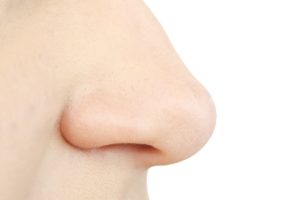 Millions of us have had a least one COVID infection. Many suffered a loss of smell during the infection. A recent study by NYU Langone researchers found that the loss of smell can linger for at least 2 years after the infection. And even if you thought that your smell was never impacted or that it has recovered, it actually may not have fully recovered, but only partially recovered.
Millions of us have had a least one COVID infection. Many suffered a loss of smell during the infection. A recent study by NYU Langone researchers found that the loss of smell can linger for at least 2 years after the infection. And even if you thought that your smell was never impacted or that it has recovered, it actually may not have fully recovered, but only partially recovered.
Among the 3525 participants in the study that reported a loss of smell during a COVID infection - 80% still had not fully recovered their sense of smell 2 years later, and for 23% it was severely diminished or lost. Interestingly, 66% of persons who originally had a COVID infection, but did not notice any smelling issues, also scored abnormally low on the evaluation done 2 years after the infection.
It can be said that their sense of smell has dulled (olfactory dysfunction). This reduced ability to smell is called hyposmia. Researchers administer a 40-odor test to persons to determine their smelling ability. To help recover the sense of smell, vitamin A supplementation and olfactory training are being tried.
From Science Daily: Millions could be living with hidden smell loss after COVID without knowing
People who suspect that their sense of smell has been dulled after a bout of COVID-19 are likely correct, a new study using an objective, 40-odor test shows. Even those who do not notice any olfactory issues may be impaired.
Led by the National Institutes of Health's RECOVER initiative and supported by its Clinical Science Core at NYU Langone Health, a team of researchers from across the country explored a link between the coronavirus that causes COVID-19 and hyposmia -- the reduced ability to smell.
The results revealed that 80% of participants who reported a change in their smelling ability after having COVID-19 earned low scores on a clinical scent-detection test taken about two years later. Of this group, 23% were severely impaired or had entirely lost their sense of smell.
Notably, 66% of infected participants who did not notice any smelling issues scored abnormally low on the evaluation as well, the authors say.
Horwitz, a professor in the Departments of Population Health and Medicine at NYU Grossman School of Medicine, adds that 60% of uninfected participants who did not report olfactory problems also tested poorly during the clinical evaluation.
Hyposmia has long been connected to weight loss, reduced quality of life, and depression, among other concerns. Those with a diminished sense of smell may also struggle to detect dangers such as spoiled food, gas leaks, and smoke, experts say. In addition, scientists have flagged smelling dysfunction as an early sign of certain neurodegenerative disorders such as Parkinson's disease and Alzheimer's disease, which can affect the brain's scent-processing region.
While past research has identified hyposmia as a symptom of coronavirus infection, most of these studies have relied on patients' own assessments of their smelling ability. Such subjective measures are not always reliable and cannot effectively track the problem's severity and persistence, notes Horwitz.
The new study in 3,535 men and women, publishing online Sept. 25 in the journal JAMA Network Open, is the largest to date to examine loss of smell after COVID-19 by using a formal test, the authors say.
For the investigation, the research team assessed thousands of Americans who had participated in the RECOVER adult study, a multicenter analysis designed to shed light on the long-term health effects of the coronavirus. Throughout the study, those with and without a history of COVID-19 completed surveys about their symptoms every 90 days from October 2021 through June 2025.
To measure olfactory function, the team used a clinical tool: the University of Pennsylvania Smell Identification Test (UPSIT). In this scratch-and-sniff evaluation, which is considered the gold standard of its kind, participants were asked to identify 40 scents by selecting the right multiple-choice option for each odor. A correct answer earned one point, and the total UPSIT score was compared with a database of thousands of healthy volunteers of the same sex and as. Based on the results, smelling ability was characterized as normal, mildly impaired, moderately impaired, severely impaired, or lost altogether.
"These results suggest that health care providers should consider testing for loss of smell as a routine part of post-COVID care," said Horwitz. "While patients may not notice right away, a dulled nose can have a profound impact on their mental and physical well-being."
Experts are now exploring ways to restore smelling ability after having COVID-19, such as vitamin A supplementation and olfactory training to "rewire" the brain's response to odors. Having a deeper understanding of how the coronavirus affects the brain's sensory and cognitive systems may help refine these therapies, notes Horwitz.
